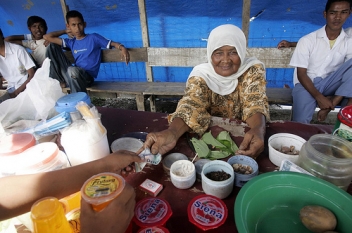 The UN turned 64 on 24 October. To celebrate this, events were organised around the world, including a flag raising ceremony in Fiji and, in Tanzania, UN staff rebuild class room floors in schools.
The UN turned 64 on 24 October. To celebrate this, events were organised around the world, including a flag raising ceremony in Fiji and, in Tanzania, UN staff rebuild class room floors in schools.
However, the main focus of the day and indeed the article, “The UN at 64: Climate change in the spotlight” was, unsurprisingly, climate change. With the UN Climate change conference in Copenhagen fast approaching, it calls on the world community to join efforts to mitigate climate change.
Climate change is a universal issue
Most of us already know we need to act. Climate change is a huge threat to us and our planet – potentially the biggest we have ever faced. However, if climate change is a universal issue, why is everybody not treated equally in its light?
Having just hit the very impressive age of 64, the UN is an older being. It has a wealth of experience, understanding, knowledge and skills to offer the climate change debate. Exactly like older people all around the world. However, time and time again we find that older people and their potential contribution to climate change mitigation are forgotten.
Older people have the knowledge
As we are increasingly witnessing, natural and man made disasters, such as heat waves, floods, droughts and earthquakes are causing increasing human suffering, great loss of life and financial loss each year.
Contrary to popular belief however, older people are not just a vulnerable group affected by such disasters. At HelpAge we support older people’s associations in employing disaster risk reduction activities, such as disaster preparedness, early warning systems, relief and rehabilitation. This, in turn, helps older people and the communities they live in to reduce the damage caused by climate change and to adapt in order to lessen its impact.
After the 2004 Indian Ocean tsunami, older people’s associations were instrumental in rehabilitation activities, such as rebuilding livelihoods. Self-managed older people’s associations helped other older people, like Salvia above, to regain a steady income to provide for their families.
Older people are respected sources of knowledge in their communities, providing information on traditional coping mechanisms and their experiences of previous disasters, which is invaluable as part of preparedness planning.
By not including older people in the climate change debate, we are not only discriminating against them (I’m sure the UN wouldn’t stand for ageist behaviour). We are missing out on a vast pool of knowledge and the opportunity to enrich the Copenhagen conference.
Read more about our work on climate change.
